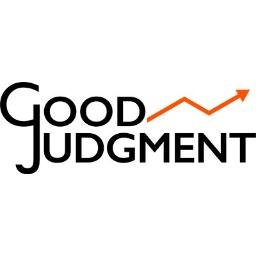 Successful leaders know how to use good judgment to make good decisions. They know if they make a poor judgment it will impact the company, team, and customers. And, they know there may not be a second chance to correct it.
Successful leaders know how to use good judgment to make good decisions. They know if they make a poor judgment it will impact the company, team, and customers. And, they know there may not be a second chance to correct it.
A business leader was part of a national news segment recently. He told the reporter that the pandemic was a hoax and like having the flu. “You’re sick for a couple of days and then back to work.” He was not wearing a mask, even though the area recommended one. His employer and customers were appalled by his lack of sensitivity and poor judgment in answering the reporter’s questions.
How to Develop Good Judgment
Expand Experience and Knowledge. Stay current and deep dive into issues that impact your business. Do not skim online articles for answers. Good conclusions require exercising good critical thinking and emotional intelligence skills when reviewing information.
Use Intuition and Gut Feelings as Guides, Not Answers. Relying solely on intuition and gut feelings for your answers will cause poor and inconsistent decisions. Use these feelings as part of the decision-making process. Remember, emotions are often triggered by past experiences and biases, which can get in the way of using good judgment.
A group of team members became upset with their leader when a team member left. They demanded to know why, but the leader was unable to share the reason due to HIPAA. The leader asked the team members to consider why a team member would leave during a big and financially rewarding project. The team moved past their emotional reactions and reached out to the team member for answers. The leader used good judgment and maintained confidentiality during an emotionally charged and tough conversation.
Value Integrity. Doing the right things the right way sounds easy until you must make a difficult or unpopular decision. Often, there is not a clear road map. The litmus test for good judgment is determined by the impact it has on others. If it’s a good decision, no one continues talking about it. If it’s a bad decision, the upset will be expressed for a very long time.
Elicit Their POVs. Are you hearing what others need to say? Team members often shy away from telling you what you need to hear. Be open and take the time to elicit their POVs. Yes, it requires more time. But, dotting the I’s and crossing the T’s now will save you time, money, and customers in the long run.
Believe in Choice. You always have a choice, whether it appears that way or not. Knowing you have a choice will open up alternatives. Explore them with your executive coach. Remember, wisdom is developed from taking risks, making mistakes, and correcting them.
Set Aside Ego. There was a wise CFO I worked with years ago. Even though he believed he had the answers to different issues, he would set aside his ego. He asked a variety of people for their input and listened! It altered some of his beliefs by identifying his biases and incorrect assumptions. What are you doing to set aside your ego? What are you doing to make sure you’re asking for and listening to others’ opinions?
Develop a True Strategy. Rubber-stamping current issues with past solutions doesn’t save time and money. Before any crisis, past solutions often create poor results since no two situations are identical. True strategy is thinking outside the box by brainstorming and considering the impact on others, today and tomorrow.
©Jeannette Seibly 2020
Jeannette Seibly is an award-winning executive coach and keynote speaker. For more than 27 years, she has been an expert in guiding leaders to excel in business and beyond. This #newnormal has created new challenges that can impact your judgments. Are you ready? Contact Jeannette for a confidential conversation. Don’t forget to listen to On the Air with Jeannette Seibly: It’s Your Time for Success on Anchor.FM or YouTube.com.
